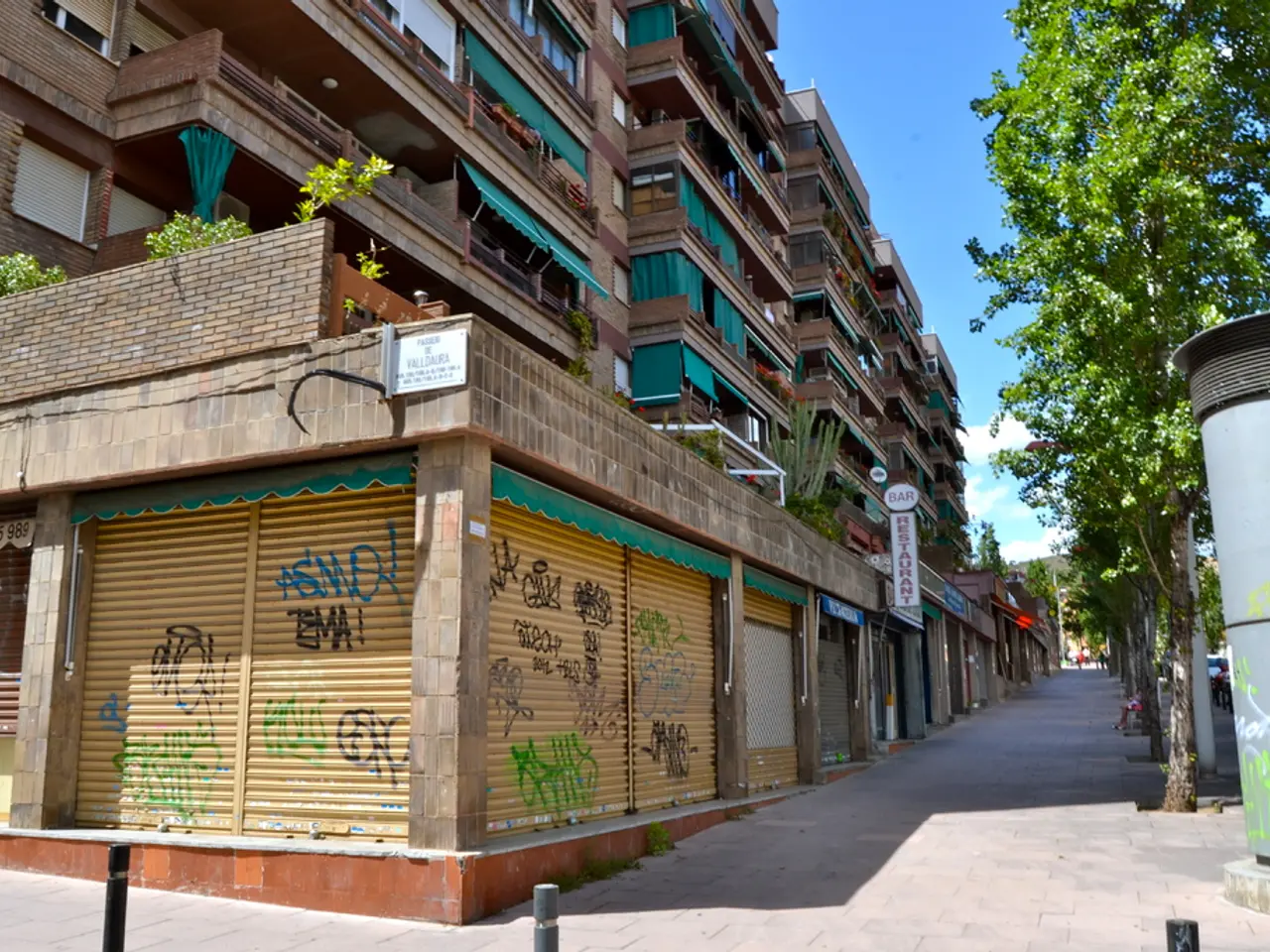One thousand trees and a thousand residential structures built
In the heart of Germany, the city of Wuppertal is set for a transformation under the leadership of Dagmar Liste-Frinker, the Green Party's mayoral candidate. Liste-Frinker has outlined a comprehensive plan focusing on reducing car traffic, creating housing, and financing projects with an emphasis on sustainability and social responsibility.
Reducing Car Traffic
To make Wuppertal a greener city, Liste-Frinker aims to promote sustainable and climate-friendly transport options. This includes expanding biking infrastructure, improving public transport, and encouraging walking. To make car use less attractive in the city center, she plans to limit parking spaces and increase pedestrian zones, reducing emissions and congestion.
Supporting electric mobility and car-sharing schemes as alternatives to private car ownership is another key aspect of the plan. The Greens also propose the establishment of an old debt fund for more efficient resource use in transportation.
Creating Housing
Liste-Frinker's plan emphasizes the need for affordable, climate-neutral housing. She aims to accelerate the construction of such housing to meet demand, ensuring fair living conditions for all residents. The Greens prioritize social housing and avoid speculative real estate developments that drive up rents.
Utilizing vacant or underused land effectively and promoting sustainable urban development with green spaces integrated are also part of their housing strategy.
Financing Projects
The Greens focus public funds on social, ecological, and sustainable projects rather than large-scale infrastructure that benefits mostly cars. They explore innovative financing mechanisms such as public-private partnerships and EU subsidies for climate protection.
Transparency and citizen participation in budget decisions are key, and the Greens prioritize investments that foster long-term sustainability and social welfare.
A Greener Wuppertal
The Greens aim to plant 1,000 new trees annually to improve the urban climate and enhance public spaces. They also plan to reduce car traffic to create more space for pedestrians, cyclists, and an efficient public transport system.
Wuppertal under the Greens will be a city that values fairness, livability, and inclusion for all its residents. The Greens plan to modernize schools to enable inclusive, barrier-free, and sustainable learning. They also aim to promote multilingualism as a resource, in addition to their other initiatives.
Supporting Refugees
The Greens plan to expand language courses and advisory services for refugees. They also intend to initiate programs for job placement for refugees, contributing to a fair and livable Wuppertal for all.
The Greens' vision for Wuppertal encompasses a variety of sectors, including urban climate, sustainability, waste reduction, climate neutrality, transportation, digital services, education, and diversity. With Liste-Frinker at the helm, Wuppertal is poised for a greener, more sustainable, and more inclusive future.
- With a focus on reducing car traffic, Dagmar Liste-Frinker, the Green Party's mayoral candidate, plans to expand biking infrastructure, improve public transport, and encourage walking in Wuppertal.
- To make car use less attractive in the city center, Liste-Frinker intends to limit parking spaces and increase pedestrian zones.
- The Greens' plan involves promoting electric mobility and car-sharing schemes as alternatives to private car ownership.
- In order to establish an old debt fund for more efficient resource use in transportation, the Greens propose setting up such a fund.
- Affordable, climate-neutral housing is a priority for Liste-Frinker, who aims to accelerate the construction of such housing to meet demand.
- The Greens prioritize social housing and avoid speculative real estate developments that drive up rents.
- Utilizing vacant or underused land effectively and promoting sustainable urban development with integrated green spaces are part of the Greens' housing strategy.
- The Greens focus public funds on projects that are social, ecological, and sustainable rather than large-scale infrastructure that benefits mostly cars.
- The Greens explore innovative financing mechanisms such as public-private partnerships and EU subsidies for climate protection.
- The Greens aim to plant 1,000 new trees annually in Wuppertal to improve the urban climate and enhance public spaces.
- In addition to their initiatives, the Greens aim to promote multilingualism as a resource, and they plan to modernize schools to enable inclusive, barrier-free, and sustainable learning.




